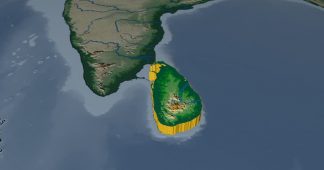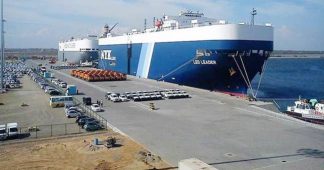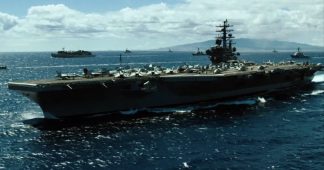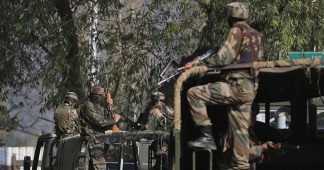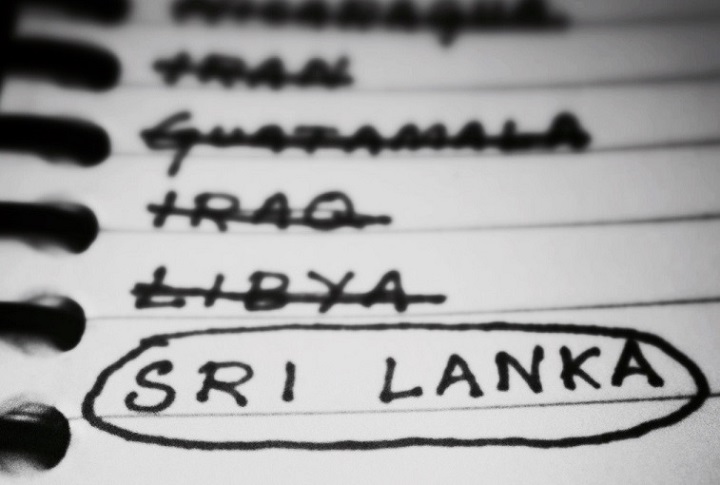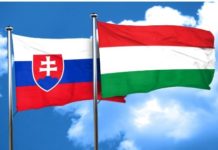By Lasanda Kurukulasuriya
The Indian Ocean Conference (IOC) organised by the India Foundation and held at the Sri Lankan Prime Minister’s official residence ‘Temple Trees’ from Aug. 31 to Sept.1, was billed as a gathering of Indian Ocean Region countries and ‘other concerned nations’ with a view to advancing ‘Peace, Progress and Prosperity” in the Indian Ocean. While this is no doubt a laudable goal, the absence of perspectives from regional players like China and Pakistan points to somewhat more partisan objectives than those advertised.
The delegate described as ‘Principal, Ambassadors’ LLC Group, China’ was actually an American citizen, and while there was ambiguity as to the interests she represented it would be safe to surmise that she did not represent the People’s Republic of China. However, the US, also an external power, was represented by its Acting Assistant Secretary of State for Central and South Asia, Alice Wells.
A post on the Conference’s Facebook page points to objectives not revealed elsewhere. It describes the gathering as being “part of India’s efforts to rejuvenate ties with IOR countries and increase its outreach in the region to counter growing Chinese influence in the region.” The IOC’s real purpose is candidly stated: “The event can be seen as an effort to counter China’s growing influence in the IOR.”
India’s worries over China’s growing maritime footprint are shared by the US, resulting in converging interests in the IOR. “Given its economic downturn, the US seeks like-minded democracies in the Indo-Pacific region to balance China” says Indian Ocean researcher Lindsay Hughes in an article published by ‘Future Directions International.’ “It has strong relationships with Australia, Japan and South Korea” but “It lacks a similar partner in the eastern Indian Ocean …” Referring to Washington’s agreement with Delhi to share military facilities and its efforts to sign an intelligence-sharing agreement as well, this analyst says that a close partnership with India “suits Washington’s strategy of passing some of the responsibility for maintaining security in the Indian Ocean Region to regional partners.”
Wells in her Colombo address unequivocally asserted that “the United States is and would continue to be an Indo-Pacific power.” It may be noticed that the terms ‘Indo-Pacific’ or ‘Indo-Asia Pacific,’ combining the two oceans as if they are a single entity, is increasingly used now by American officials. The terminology may be intended to make the increasing US assertiveness in the IOR seem ‘normal’ although the US lacks presence in the Indian Ocean comparable to its massive build-up in the Pacific theatre. The US’s deepening ties with the Sri Lanka Navy in recent times are also worth noting in this context. At the conference, Wells announced the first ever US-Sri Lanka naval exercise to be carried out in October. According to reports this exercise will be conducted by the US Seventh Fleet in Trincomalee, a strategically located deep water port on the country’s East coast.
The US has increasingly referred to ‘Freedom of Navigation and Over flight’ in its rhetoric, seeking to enlist the support of partners in its enforcement. While in her speech Wells called on others to “adhere to a common vision that respected international law as reflected in the Law of the Sea Convention,” it is ironic that the US itself has not acceded to the LOS Convention. All the same the US has been in the habit of challenging other states when they act in ways that the US believes pose a threat to ‘freedom of navigation,’ by sending its warships into the waters concerned. These ‘Freedom of Navigation (FON) assertions by the US have dangerously racked up tensions with China in the South China Sea. In the latest incident reported last month, the USS John S. McCain sailed within 12 nautical miles (the internationally recognized territorial limit) of Mischief Reef in the Spratly islands, causing Beijing to express displeasure over what it called an act of provocation. The incident took place in disputed waters where China’s claims are contested by neighbours. The volatility of the situation is compounded by the fact that this was a time when China’s help was being sought to defuse tensions with North Korea over its missile tests.
Armitai Etzioni of The George Washington University, Washington DC says the US is acting, as it is often accused, as the world’s policeman. “ .. as far as FONA (Freedom of Navigation Assertions) is concerned, the United States decides on its own which new restrictions introduced by any nation in the world are ‘‘excessive,” and what it considers the correct interpretation of international law and UNCLOS” he said in a 2015 research paper. “And it unilaterally applies its military force ….. to enforce the rules. In short, in these matters the United States acts as accuser, judge, jury, and executioner.” Etzioni warns that these types of actions add a security risk “as they can quite readily escalate into dangerous clashes between the forces of the super powers.”
It is in this context of ambiguity as to the motives of various parties, that Sri Lanka’s Prime Minister Ranil Wickremesinghe pledged at the IOC that Sri Lanka would take the lead in initiating a discussion “to deliberate on a stable legal order on freedom of navigation and over flight in the Indian Ocean.” In view of the US’s eagerness to strengthen military ties with Sri Lanka, the question arises as to whether the US agenda of containing China has been taken on as well. The language used by India’s External Affairs Minister Sushma Swaraj, by comparison, was more circumspect, and did not refer to ‘freedom of navigation’ but rather Indian Prime Minister Narendra Modi’s vision of ‘Security and Growth for All in the Region’ (SAGAR). Given the prevailing tensions in the IOR Sri Lanka will need to beware of being used as the cat’s paw of any big power in its games of brinkmanship – it does not need to become another South China Sea!
Asked to comment, Palitha Kohona, former head of the UN Treaty Section in New York expressed the view that Sri Lanka must again take a high profile position in discussions relating to the oceans and the blue economy. Dr. Kohona was also Chair of the UN Sixth Committee (Legal), Chair of the UN Committee on Biological Diversity Beyond National Jurisdiction and Chair of the Indian Ocean Committee. He made this assertion “given that Sri Lanka, with its 200-mile EEZ and potentially vast continental shelf would increasingly turn to the ocean for its future prosperity (fisheries, petroleum and mineral extraction, environmental protection, including coral reefs, dolphins and whales, migratory fish species, tourism, etc).” On an optimistic note he added that Sri Lanka’s input will be respected “where the Convention on the Law of the Sea needs further elaboration or clarification, including in the formulation of codes.”
“Of course, like many rules of international law, the provisions of the LOSC also tend to be interpreted to suit the convenience of those relying on them. Some major powers are not parties to the LOSC but subscribe to its provisions as reflecting customary international law – the US, Turkey and Venezuela among them” he said.
